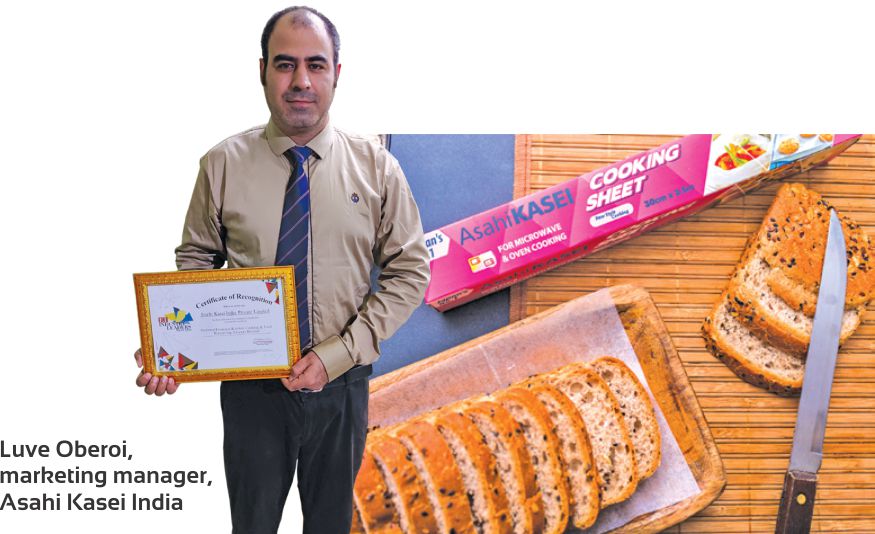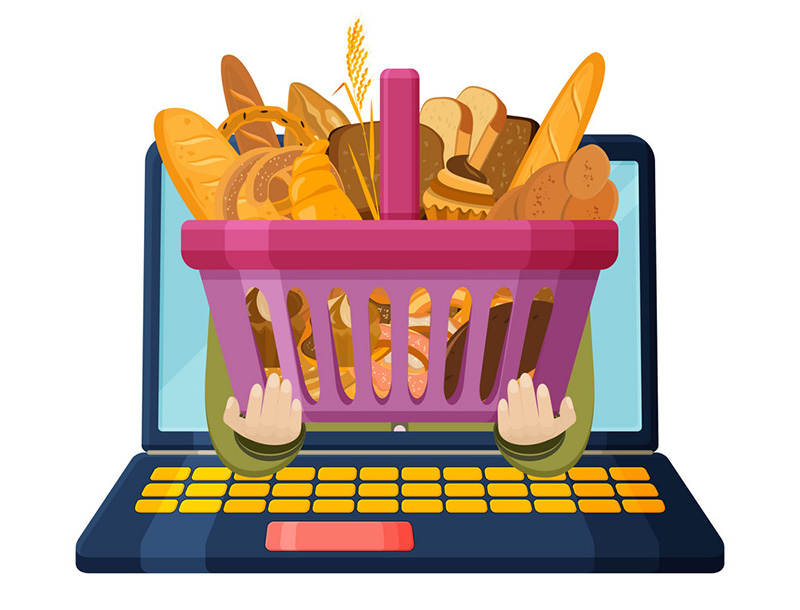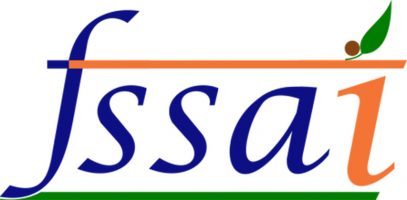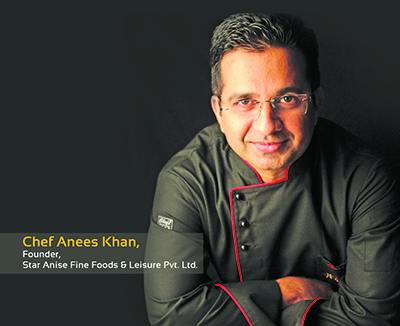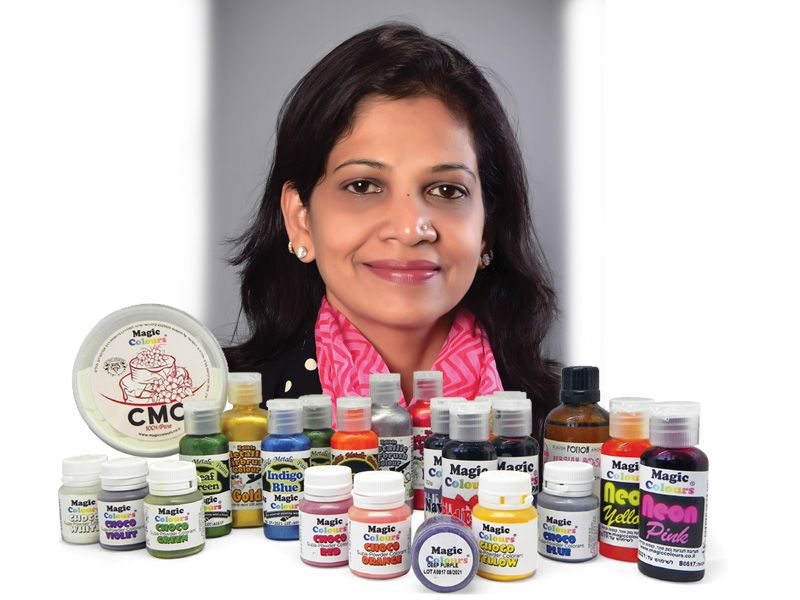Bakery Biz, July-August, 2021
 Veganism is extreme vegetarianism, and this concept can be traced to ancient Indian and eastern Mediterranean societies. The Greek philosopher and mathematician Pythagoras in 500 BC promoted kindness to all animals. Siddhartha Gautama (aka Buddha) taught his followers about vegetarian diet and followers of Hinduism and Jainism too advocated veganism.
Veganism is extreme vegetarianism, and this concept can be traced to ancient Indian and eastern Mediterranean societies. The Greek philosopher and mathematician Pythagoras in 500 BC promoted kindness to all animals. Siddhartha Gautama (aka Buddha) taught his followers about vegetarian diet and followers of Hinduism and Jainism too advocated veganism.
The true movement towards vegan diet took form with William Lambe, when the London-based physicist stated that plant-based diet could cure anything from acne to tuberculosis. The term ‘vegan’ was coined in 1944 by Donald Watson an English animal rights activist who also cofounded the Vegan Society. Many food business operators (FBOs) today have started claiming their product to be Vegan. It is good branding exercise, calling in all the health enthusiasts as well as PETA sympathizers to up the sales across the food retail.
Vegan is simply any vegetarian product with additional restriction for not having any ingredient of the vegetarian product derived from animal source and / or no animal has been used in making of the product. So, Milk, Honey, certain additives like Cochineal, Lecithin, Glycerol, Gelatin, Isinglass, Vitamin D3 etc. are a complete NO. An ethical religious view on Veganism is all about choosing a way of life which excludes all forms of exploitation of animals for consumption of food.
Now, more importantly the Brand Vegan is building up a revenue base which is expected to be exceeding $21 billion by 2024, as per Global Market Insights. The US market has seen a 400 per cent increase in the number of vegan products and as per the latest report by IMARC group ‘Vegan Food Market: Global Industry Trends, Share, Size, Growth, opportunities and Forecast 2021-2026’, the global market is expected to grow at a CAGR of 11.4 per cent during 2021-2026. Many certification bodies have become the early birds to catch the worm… Oops, we are talking about Vegan, so no mention of animals here.
A quick business in certifying products as Vegan has led to many FBOs using the brand Vegan to differentiate themselves on the shelfs and in turn zooming away to big sales numbers. The countries that encompass global vegan market include India, Brazil, China, France, Germany, Indonesia, Australia, Russia, South Korea, UK and the US. The top international market players being Amy’s Kitchen, Daiya Foods Inc., Plamil Foods Inc., Danone S.A, Beyond Meat Inc. and Eden Foods.
Many Indian brands too are catching up with the vegan craze. Some of the top brands in India being Veggie Champ, Promeat, Imagine Meats, Mister Veg, Greenest Foods, Vegeta Gold, Good Dot, Vezlay, Strive, Evo Foods, Plant Made, White Cub and many more. The key products that are covered consists of mock meat products, egg products, cheese and milk products which dominate the
market.
The working group led by the NGO Safe (Safe Food Advocacy Europe) has developed a standard known as Vegan Standards 2019, EU and other countries are in the process of developing regulations for label declaration. There are many international organizations such as the Vegan Society that evaluate the products and allow the manufacturers to display trademark ‘Vegan Logo’ based on their private evaluations.
So, do we really need Vegan? Well for health maybe or maybe not, but for business it is becoming a must to have. To reign in the free for all Vegan Branding and ultimate objective of protecting the gullible consumer, our food authority has interestingly come up with much needed guidelines on Vegan.
Food Safety and Standards Authority of India (FSSAI) defines Vegan Food as those food or ingredients that have not been made by use of any additives, ingredients and processing aids of animal origin. These include fish, meat, poultry, milk and milk products, egg or egg products, materials of insect origin like silk, dyes, chitin, etc., honey and honey products or ingredients which are clarified using animal products.
As per notification no. F. No. Std/TF-Vegan Foods/Notif./FSSAI., dated 6th September 2021, FSSAI has formulated the draft regulations called Food Safety and Standards (Vegan Foods) Regulations, 2021. As per these regulations no manufacturer or Food Business Operator shall manufacture, sell, market, distribute or import vegan food unless they meet the specifications of these
regulations. Additionally, all vegan food must be such that it has not been subjected to animal testing for evaluation of suitability of the food products and the food shall not be derived from any animal based Genetically Modified Organisms (GMOs). Traceability shall be established up to manufacture level to maintain the integrity of the Vegan product, along with compliance to all relevant provisions of the Act, rules and regulations defined by the food authority.
How can an FBO ensure compliance to these regulations?
- Submission of application with details pertaining to the plant/facility/premises. The premises will be verified and inspected by the respective Designated Officer/Food Safety Officer.
- Analytical testing (molecular / chemical / combination of both) of the product by a laboratory for establishing the absence of animal origin and this information can thus be used for vegan logo in license.
- Annual surveillance shall be undertaken by licensing authority at least once in a year.
How should Vegan food be labelled and displayed?
- Vegan foods must comply with all the packaging & labelling requirements under the Food Safety & Standards (Labelling & Display) Regulations, 2020.
- The FBO must also comply to all regulations mentioned under Food Safety & Standards (Vegan Food) Regulations, 2021.
- The FBO/seller must ensure that all vegan food is stored and displayed separately from non-vegan food.
- All packages must carry the Vegan logo as shown in the image

This draft would be subjected to scrutiny by ALL, but we must thank FSSAI for coming up with this regulation at the right time. It will certainly bring in the alignment and help the FBOs as well as the consumer to have informed decision. The Vegan Logo of FSSAI is also set to become a brand – Brand India.
It is also equally important that the food handlers be made aware about conscious handling of vegan foods and the critical control points with appropriate training under the FSSAI Food Safety Training and Certification FoSTaC program. One more training requirement for the FBO!

Dr Nilesh Amritkar,
MD, Envirocare Labs
About the Author: Dr. Nilesh Amritkar is PhD in Microbiology from UDCT Mumbai and is currently Managing Director, at Envirocare Labs. He is working in the field of Testing, Inspection and Certification of Food, Environment, Pharma, and Consumer Products since past 21 years. Envirocare Labs over the past 40+ years has been in the forefront of monitoring, analysis, research, training, inspections and auditing and has grown into a World Class Laboratory spread across 50,000+ Sq. ft with state-of-the-art instrumentation. They are accredited under ISO 17025 by NABL and are recognized by MoEF, MoFPI, FSSAI, BIS, EIC, FDA, APEDA and AGMARK. To get your products tested for vegan food declaration, write at info@envirocare.co.in



